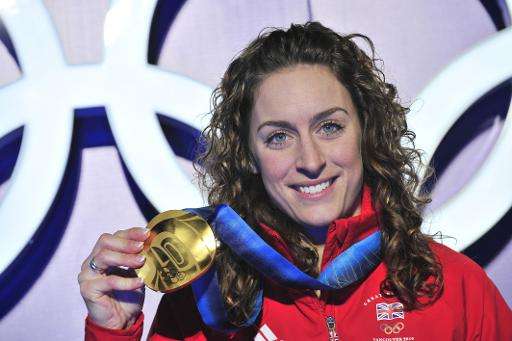Elite athletes' brains 82 percent faster

Elite athletes are blessed with an area of the brain that performs 82 percent faster than average under intense pressure, a study published on Wednesday claims.
A series of tests commissioned by Dunlop Tyres in conjunction with University College London (UCL) found that extreme sportsmen and women performed significantly better under physical and mental duress than members of the public.
Test subjects were given tasks that required the use of the parietal cortex, a key part of the brain that determines reaction speed. The study found that the athletes had "an exceptional advantage".
"What often sets some people apart from the rest is not how good they are in the practice arena, but how good they are under pressure," said UCL professor Vincent Walsh, who has worked on mental conditioning with British Olympic athletes and the England rugby team.
"We wanted to test these guys to see if we could probe what sets them apart. In some of the participants' fields, split-second decision-making can result in the ultimate difference."
The five athletes who took part in the study were motorcyclist John McGuinness, a multiple Isle of Man TT winner, leading free climber Leo Houlding, racing driver Sam Bird, wing-suit daredevil Alexander Polli and skeleton bob Olympic gold medallist Amy Williams.

The quintet and five members of the public were subjected to mental and physical pressures before performing a timed visual task that required participants to identify a series of shapes and patterns.
After the physical exercises, which included the participants working until exhaustion on exercise bikes, the elite sportspeople were 82 percent quicker than the other participants.
In particular, McGuinness, 43, performed more quickly under physical pressure than under no pressure at all, making no errors in the test.
Overall, the high-risk sportsmen and women individual performances improved by 10 percent when they were fatigued, while the other group's results got 60 percent worse.
Following the mental tests, which measured how the participants coped with distractions while responding to visual cues, the elite athletes performed three times better than the members of the public.
While it is unclear whether the athletes' neurological advantages were inherited or developed through practice, Walsh said: "These skills can definitely be improved.
"It's a case of exposing yourself to these conditions and challenges on a regular basis to get better.
"We might not be able to become a John or a Leo, but all these areas of the brain can make connections in later life so we can enhance ourselves."
Footage from the study, which is not being published in a peer-reviewed journal, can be viewed here:
© 2015 AFP

















